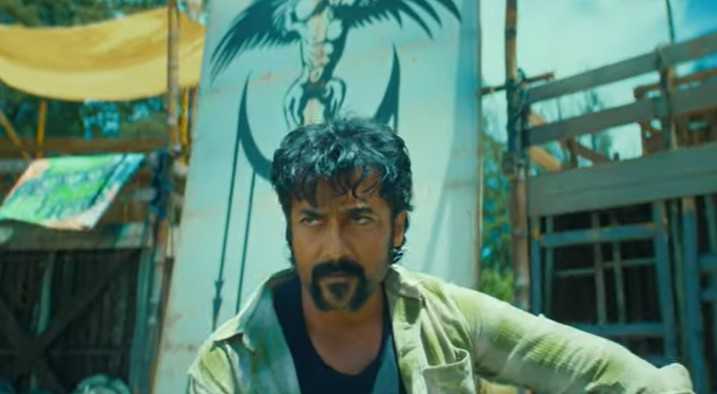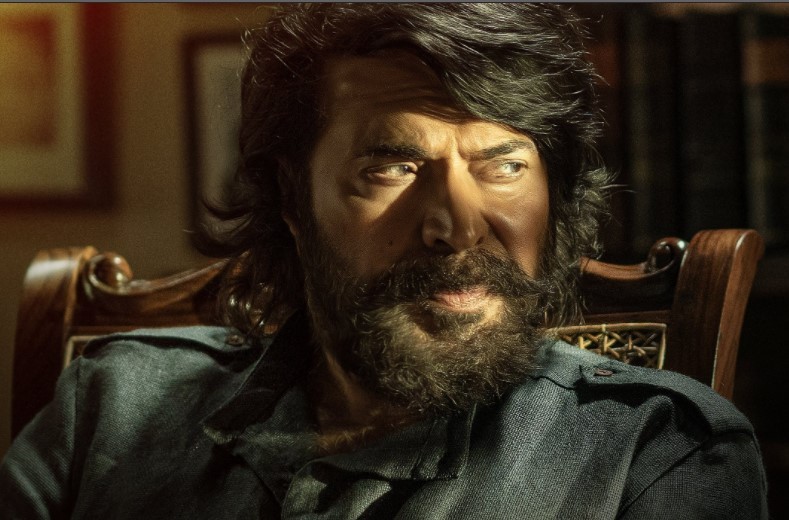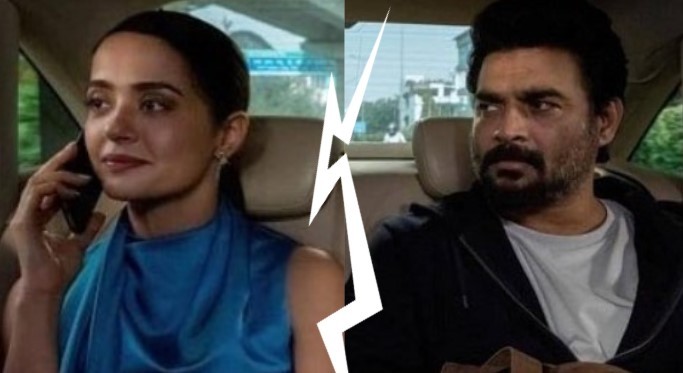May 1, 2025: Retro Movie Review: Some films roar from the start and fade away quietly. Karthik Subbaraj’s Retro does exactly that—it bursts onto the screen with ambition, visual flair, and emotional intensity, only to lose steam as it tries to juggle too many themes, ideas, and timelines. Still, it remains an emotionally affecting tale of identity, trauma, and transformation, thanks largely to a riveting performance by Suriya.
From the very first frame, Retro commands your attention. The 15-minute single-take action sequence set to the infectious ‘Kanima’ song is a technical marvel—packed with raw emotion, choreographed violence, and father-son tension that immediately pulls you in. You’re not just watching a film. You’re in it.
The story begins in the 1960s and quickly jumps to the 90s, following the deeply fractured life of Paarivelkannan (Suriya). Orphaned, adopted, unloved, and eventually reshaped into a reluctant henchman—his journey is filled with longing, loss, and the search for love.
At the heart of Retro is Paari’s relationship with Rukmini (Pooja Hegde)—two souls finding solace in each other after a lifetime of grief. Their romance is gentle and honest, but sadly, it never quite becomes the film’s emotional anchor. What should’ve been the soul of the film feels underdeveloped, buried under layers of political and philosophical commentary.
Retro Movie Review: Performances That Anchor the Chaos

Let’s make one thing clear: Suriya is the film. His performance is a masterclass in restraint and intensity. From brooding violence to tender vulnerability, he brings an emotional gravity to the role that holds the film together even when the narrative starts to unravel.
Joju George, as the cold-hearted Thilagan, matches him in intensity. He brings menace without turning into a caricature. Pooja Hegde surprises with one of her most nuanced performances yet, though her character arc deserved more substance.
Director Karthik Subbaraj has never shied away from big ideas, but Retro suffers from trying to say too much. From mythological symbolism (Krishna and Rukmini) to meditations on colonialism, democracy, and the karma of violence—the film feels like an overstuffed suitcase. Instead of letting the emotional beats breathe, the script keeps pushing ideology, often at the expense of pacing.
Composer Santhosh Narayanan delivers a score that fits the mood, especially in the early half. The cinematography is lush, the editing crisp, and the transitions between timelines smooth. Technically, Retro is polished. But after a point, style starts to overpower story, and the emotional tension that the film builds so well early on gets lost in a fog of self-importance.
Final Take: Flawed, But Fascinating
Retro is not a film you can easily dismiss. It is bold, daring, and deeply personal in its intentions. Yes, it falters. Yes, it overreaches. But it also has moments of undeniable brilliance. With better narrative focus, Retro could’ve been unforgettable.
For now, it remains a visually striking, emotionally bruising gangster tale, carried by one of Suriya’s most grounded performances.






